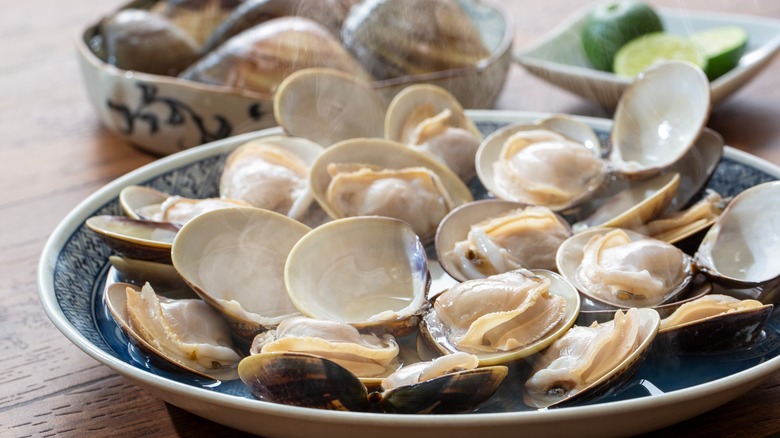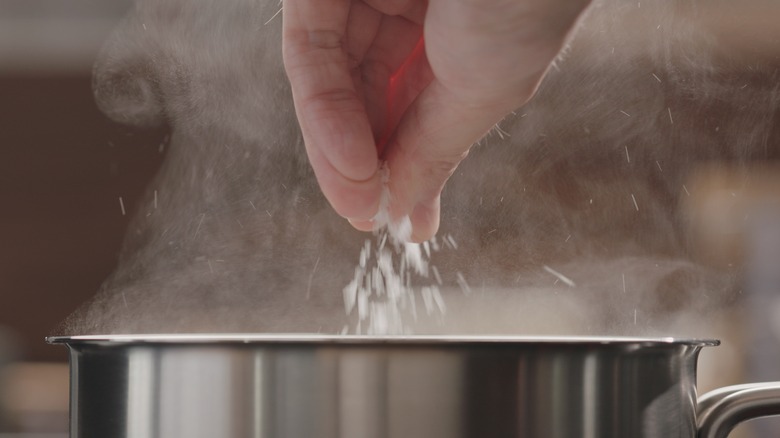Like Pasta, Be Sure To Salt Your Water When Boiling Clams
Boiling clams? Don't forget to salt the water. You probably know that bivalves should soak in a mixture of salt and cold water for a few hours before cooking. Ideal for purging clams of any bits of sand, this salty soak can help in achieving better (read: grit-free) textures. However, this process doesn't do much for flavor. It's for this reason that we encourage you to call on your breadth of culinary knowledge and cook clams like you would cook pasta. After soaking, simply boil the shelled mollusks in just-as-heavily salted water, and get ready to experience the most delicious clams you've ever feasted upon.
Boiling is one of the most basic and frill-free cooking methods there is. It's also one of the best ways to accurately express the true flavors of an ingredient. That said, when plain water is the cooking liquid of choice to execute the technique, blandness is a very real threat. But, add salt to the water and that changes, dramatically. Much like how pasta noodles taste better when they're cooked in salted water, the same can be said for boiled clams. Boosting flavor ever so subtly, cooking clams in a pot of salty, bubbling water draws on the clams' natural brininess, while elevating their delicately nuanced sweetness.
When boiling clams, add salt... and then add some more
The concept of cooking pasta and clams is identical: Sprinkle kosher salt into boiling water, before tossing in your ingredients. Where things start to get complicated lies within the quantities of water and salt that should be used. Despite that many believe in seasoning water until it "tastes like the sea," this means different things when boiling pasta and boiling clams.
Clams, like pasta, need to be fully submerged in a pot for even cooking. However, unlike noodles that can swell to twice their size, clams won't absorb liquid, which impacts the amount of water needed. Generally, a pound of clams requires just ¼ quart of water, in comparison to the 4 quarts needed to cook a pound of pasta. Yet, while you might assume that a huge vat of pasta water needs more salt, that isn't the case. In fact, every 4 quarts of pasta water needs a modest 1 to 2 tablespoons of kosher salt, whereas 1 tablespoon of salt is only enough to season a single quart of clam water!
Although it might seem excessive, all this salt needs to be added to clam water for proper seasoning. What's more, because the salty liquid won't be consumed afterward, there's even less need to fear salinity. Nevertheless, since salting any cooking water can affect flavor, be mindful when pairing clams (or even pasta) with other potentially salty ingredients. The only thing left to say is, bon appétit.

